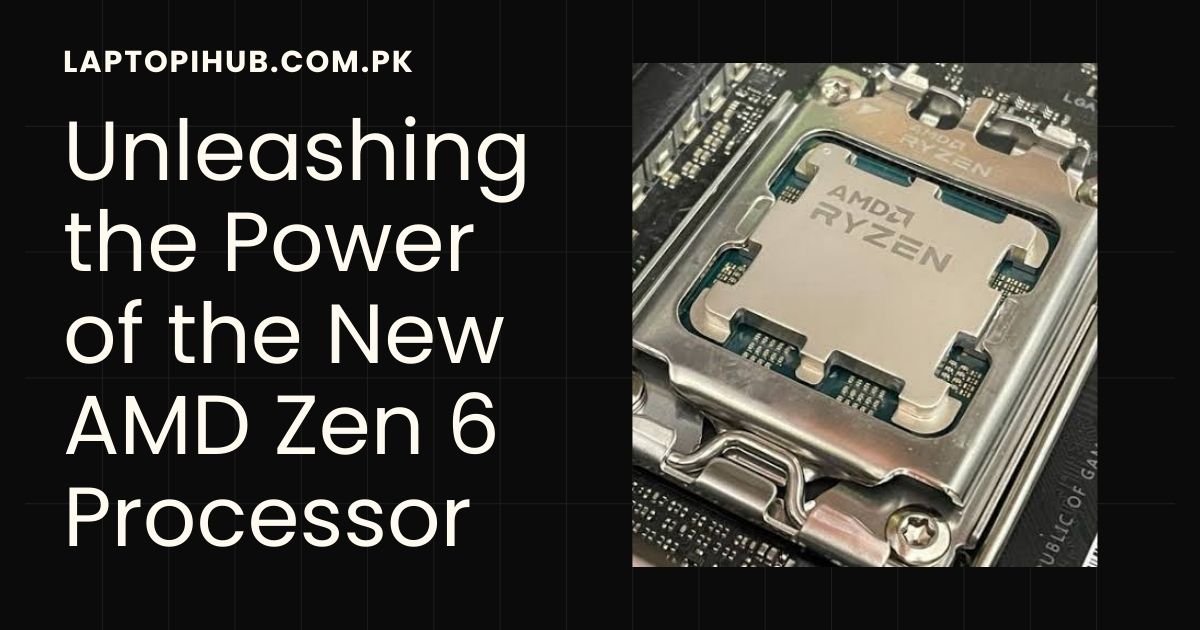Explore the new AMD Zen 6 processor: next-gen performance, 2nm efficiency, AI power, and epic gaming potential in one powerhouse CPU.
Introduction to AMD’s Zen Architecture
What Is AMD Zen?
If you’ve been around the PC block for a while, you’ve definitely heard of AMD’s “Zen” architecture. It’s the brain behind AMD’s Ryzen and EPYC CPUs, and it’s been a game-changer in the world of processors since it launched in 2017. Zen redefined performance, multi-threading, and value in CPUs — shaking Intel’s throne.
A Quick Recap of Zen Generations
From the OG Zen to the mighty Zen 5, AMD has evolved rapidly:
- Zen 1 broke Intel’s monopoly.
- Zen 2 introduced 7nm tech.
- Zen 3 pushed insane IPC gains.
- Zen 4 brought DDR5 and PCIe 5.0.
- Zen 5 integrated AI instructions and efficiency tweaks.
Now? Zen 6 is here, and it’s ready to tear up the rulebook.
What’s New with AMD Zen 6?
Zen 6 vs Zen 5 – Key Upgrades
Think Zen 5 was powerful? Zen 6 kicks it up several notches. We’re talking about:
- A brand-new microarchitecture
- AI-first design
- Power efficiency unlike anything before
Enhanced Performance and Efficiency
Zen 6 delivers significant IPC improvements, optimizing each clock cycle. Early leaks suggest a 15-20% IPC boost, which could make older chips feel prehistoric.
Plus, Zen 6 is reportedly using a 2nm fabrication process – translating to more performance with lower power draw.
AI-Ready Architecture
AMD knows AI isn’t just a buzzword — it’s the future. Zen 6 comes equipped with AI acceleration units, tailored for machine learning, gaming enhancements, and predictive computing. Whether you’re running neural nets or next-gen games, Zen 6 is AI-flexed and future-fit.
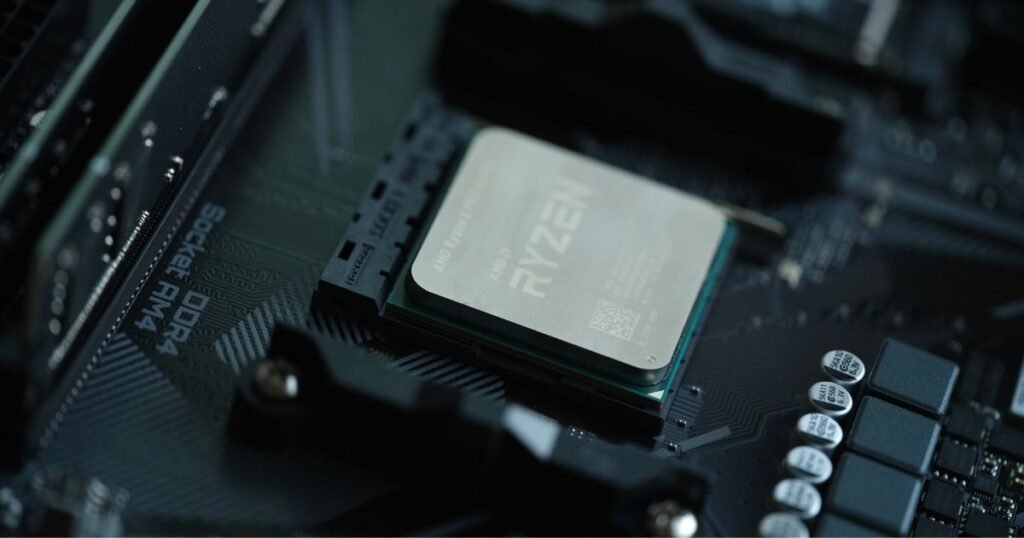
Technical Specs of Zen 6
Advanced 2nm Process Node
Smaller is better — in chips at least. Zen 6 is manufactured on a TSMC 2nm node, meaning:
- Higher transistor density
- Better thermals
- Less energy consumption
- More room for cores and cache
Improved IPC (Instructions Per Clock)
Performance per clock cycle has been bumped again. Zen 6 doesn’t just rely on brute GHz; it’s smarter per tick, which matters for both gaming and productivity.
Support for DDR6 and PCIe 6.0
Yes, DDR6 is coming — and Zen 6 will be ready. Add PCIe 6.0 to that mix and you’ve got insane data speeds for:
- GPUs
- SSDs
- Future expansion cards
Gaming Performance on Zen 6
Frame Rates and Benchmarks
Gamers, rejoice! Zen 6 delivers serious fps gains. Whether you’re playing at 1080p or 4K, expect smoother gameplay and less CPU bottleneck.
Preliminary benchmarks suggest 15% better gaming performance over Zen 5 in real-world titles like Cyberpunk 2077 and Elden Ring.
GPU and CPU Synergy
With Radeon GPUs and Zen 6 CPUs, AMD’s ecosystem is stronger than ever. Smart Access Memory and Infinity Cache benefit from Zen 6’s architecture for better harmony between components.
Overclocking Potential
Zen 6 chips are rumored to be overclocking beasts. With improved power delivery and thermal management, you can push your chip beyond stock settings without frying your rig.
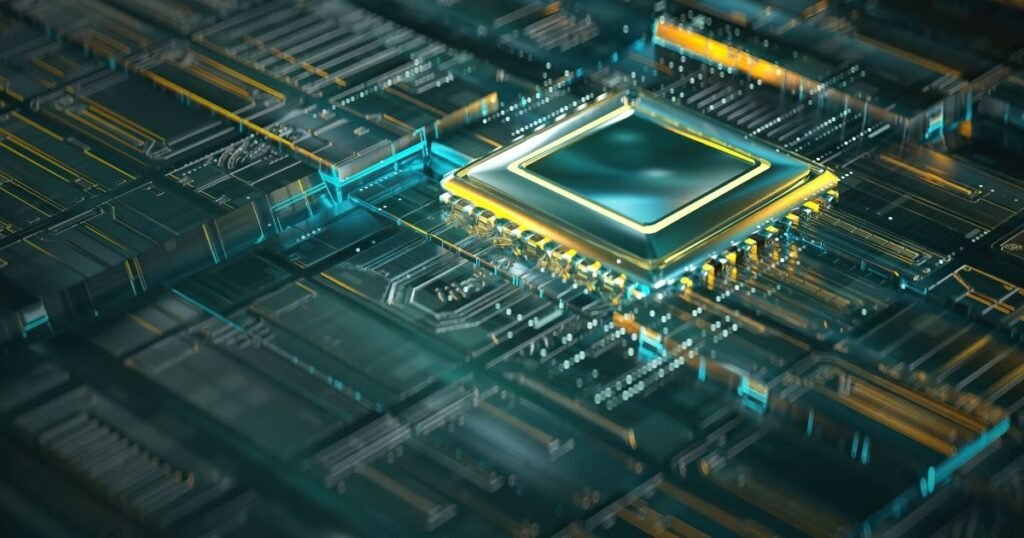
Zen 6 in Creative Workflows
Video Editing and Rendering Speeds
Time is money — especially if you’re a content creator. Zen 6’s multithreaded performance will shred through 4K video edits, render animations, and process effects like a hot knife through butter.
Multithreading for Professionals
Up to 32 cores and 64 threads are expected in high-end models. For devs, designers, and digital artists, Zen 6 delivers desktop-grade performance that rivals some workstations.
AI and Machine Learning Capabilities
AI Acceleration Features
Zen 6 is AI-native. It’s built to handle:
- Machine learning models
- Real-time voice recognition
- AI-based upscaling in games and apps
All baked right into the CPU — no add-ons needed.
Integration with AI Workloads
Whether you’re running TensorFlow, PyTorch, or AI-powered creative apps, Zen 6 keeps up with the latest workloads. AMD’s AI engine is streamlined for real-world tasks, not just benchmarks.
Compatibility and Future-Proofing
Socket and Chipset Support
Zen 6 will stick to the AM5 socket, which is a sigh of relief for recent upgraders. No need to toss your motherboard just yet!
Backward Compatibility
While DDR6 is supported, you’ll likely still have backward compatibility with DDR5 and PCIe 5.0, depending on the model.
Future Software Optimization
Developers are already tuning apps and games for Zen 6’s new features. Expect better performance in future software as the architecture gets full support.
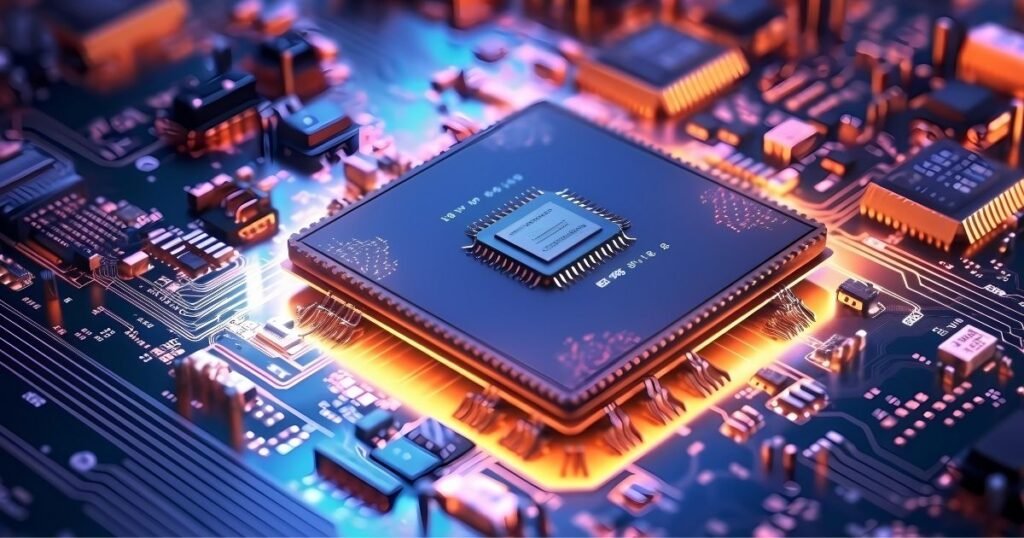
AMD Zen 6 vs Intel Meteor Lake
Head-to-Head Performance
Intel’s Meteor Lake is sleek, but Zen 6 is savage. Performance benchmarks suggest AMD could be leading in multithreaded tasks and possibly gaming, depending on the game and GPU.
Power Consumption Showdown
Zen 6 is more efficient thanks to the 2nm node. Intel’s Meteor Lake, while strong, uses a hybrid design that’s still playing catch-up in raw efficiency.
Price and Market Position
Expected Pricing Tiers
Expect a similar range to Zen 5:
- Entry-level: $200–$300
- Mid-range: $400–$500
- Enthusiast: $600–$800+
Target Audience and Use Cases
Whether you’re a casual gamer, a hardcore overclocker, or a creative pro, Zen 6 has a chip for you.
What Experts Are Saying
Industry Analysts’ Reviews
Analysts are hyped. Many believe Zen 6 could close the gap between desktop and workstation performance entirely, especially with its AI integration.
Developers’ and Gamers’ Reactions
Early testers and devs are praising Zen 6’s thermal stability, speed, and future readiness.
Launch Date and Availability
Expected Release Windows
AMD hasn’t confirmed a date, but insiders are pointing to a Q1 or Q2 2025 release.
Global Distribution Plans
Expect availability in major markets first — US, Europe, and parts of Asia. But AMD promises wider rollout shortly after launch.
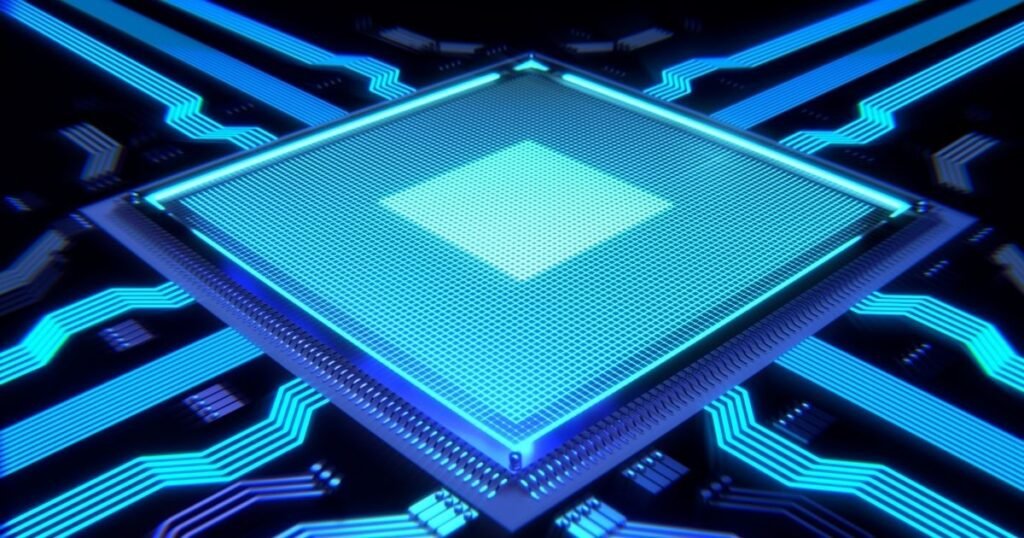
AMD’s Future Beyond Zen 6
Roadmap to Zen 7
Zen 6 may be hot now, but AMD’s already looking ahead. Zen 7 is rumored to focus on quantum computing enhancements — yep, it’s getting futuristic fast.
Long-Term Vision for CPU Innovation
AMD’s mission? Smaller, faster, smarter CPUs. With Zen 6 as the foundation, the future looks very, very bright.
Should You Upgrade to Zen 6?
Factors to Consider
Ask yourself:
- Are you on Zen 2 or older? It’s a no-brainer.
- Already on Zen 5? You might wait — unless you need AI and speed right now.
- Building new? Zen 6 is a solid bet for the future.
Upgrade Advice for Gamers, Creators, and Power Users
If you’re into:
- Gaming → Yes
- Streaming → Yes
- Editing or AI workloads → Absolutely
Zen 6 is a massive leap worth considering.
Conclusion
The new AMD Zen 6 processor is a powerhouse built for the future. From next-gen gaming to AI workloads and professional tasks, it offers blazing performance wrapped in cutting-edge architecture. Whether you’re upgrading or building fresh, Zen 6 is shaping up to be a major milestone in computing history.
FAQs
1. What makes AMD Zen 6 better than Zen 5?
Zen 6 uses a 2nm process, improves IPC, integrates AI acceleration, and supports DDR6/PCIe 6.0.
2. Will Zen 6 support current AM5 motherboards?
Yes, Zen 6 is expected to be compatible with AM5 sockets, so you won’t need a new motherboard.
3. Is AMD Zen 6 good for gaming and streaming?
Absolutely. It offers higher frame rates, better multitasking, and improved efficiency.
4. When will AMD Zen 6 be released?
It’s expected to launch in Q1 or Q2 of 2025, though AMD hasn’t confirmed the exact date.
5. How does Zen 6 compare to Intel’s latest chips?
Zen 6 is more efficient and competitive in both multi-core and AI-heavy tasks, possibly outperforming Intel’s Meteor Lake in many areas.

